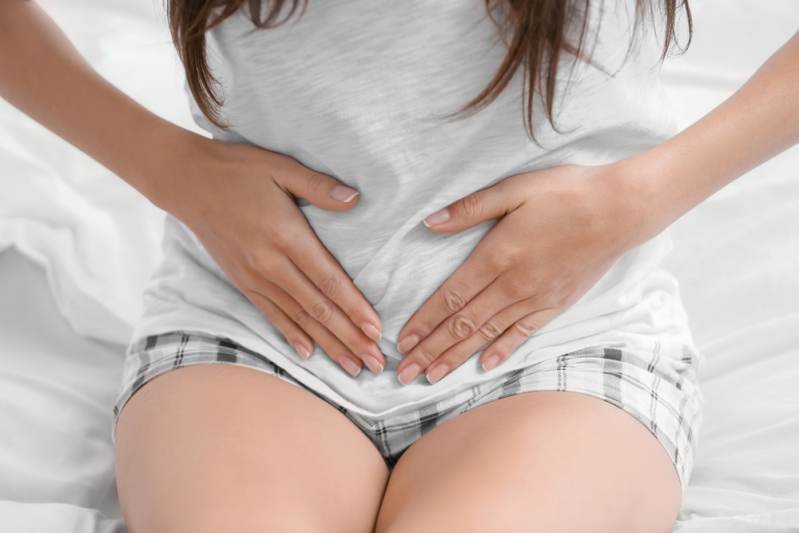
Cramping during the first trimester is a typical incidence among women. These cramps tend to be mild and similar to the menstrual-like. They feel more like a pulling sensation on either one or both sides of the abdomen. Although this pain is nothing to worry about, it is advisable to consult your doctor just to be sure.

Cramping is a typical response to the changes occurring in your body. The first-trimester cramping is caused by the body’s release of the hormone prostaglandins. This hormone is responsible for the menstrual cramps that most women experience monthly. Once the egg is fertilized, the uterus may undergo spasm in response to the changes occurring in the body.
This is a common symptom of pregnancy and may be followed by spotting. The spotting is due to the decline in the hormone progesterone prior to and during the woman’s former menstruation period. The decline in the hormone progesterone triggers the cramp-inducing prostaglandins similar to what happens in the menstrual cycle. However, the cramping and spotting are expected to reduce about the 6th week of gestation.
Some women experience severe cases. The experience is similar to heavy period cramps. Similarly, they may be accompanied by severe spotting or bleeding. Such instances may be a sign of a miscarriage. Miscarriage in early pregnancy can be difficult to prevent especially if is ectopic.
On the other hand, the body may be trying to expel the fertilized egg due to low progesterone levels. It is advisable to consult a doctor if you experience severe cramping in early pregnancy.
It is normal to experience on and off cramping or abdominal pain in early pregnancy, and even as it progresses (i.e. 4 weeks, 6-7weeks, 8 weeks). This a normal the body’s response to the changes occurring in your uterus as it expands to accommodate the baby. During the 2nd trimester, the cramping may be due to the stretching of the ligament muscles supporting the uterus.
It is important to note that early pregnancy symptoms are similar to those experienced if your period’s delay. These symptoms include breast tenderness, spotting, headaches, fatigue, nausea, and you guessed it! Cramping or period pain. Some women get the mild ones at about the same time their period would have started if they were not pregnant.
Once the egg is fertilized, it attaches itself to the uterine wall. This attachment can cause implantation cramping and bleeding. Due to implantation, one feels like some deep tummy pain or abdominal pain. You feel like your lower stomach is stretching.
Although implantation cramping is an indication to some women that they are pregnant, other incidences may cause them:
If the cramps persist, you should consult a doctor.
There are several approaches to treating cramping during pregnancy. First, if a woman finds it hard to keep a baby due to low progesterone, there are herbs that the doctor may recommend such as Dioscorea (wild yam), and viburnum (cramp bark). These herbs can keep the uterus from cramping during early pregnancy while at the same time helping the body to find its hormone balance.
However, it is advisable to consult a physician with a strong background in herbal medicine before embarking on this treatment approach.
If you experience mild cases, then you can try self-care techniques such as:
Avoid using heat on your abdomen during early pregnancy as it can harm the developing baby.